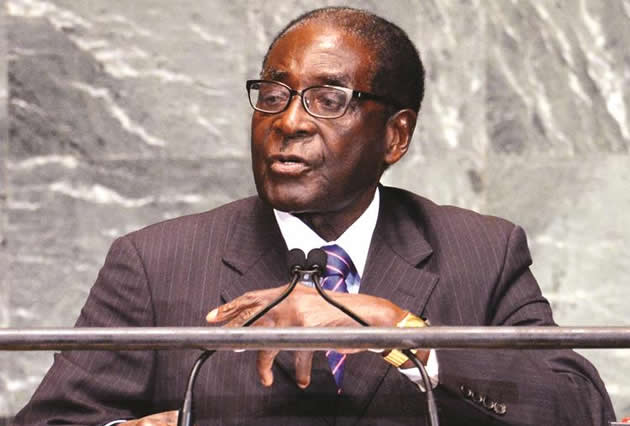Value addition and beneficiation: Burying imperial exploitation

Prosper Ndlovu Business Editor
AS Africa marks 52 years of solidarity since the formation of the Organisation of African Union (OAU), now African Union (AU) on Monday, questions on the economy dominate the discourse around the meaning of this annual holiday.While the continent enjoys political freedom — brought through fierce liberation wars against Western imperialist masters, more needs to be done on the economic front to alleviate poverty and improve standards of living for the majority.
Notwithstanding relative strides made so far by certain individual countries in stabilising their economies, there is a realisation that Africa needs a collective strategy to achieve sustainable economic development, a kind of a strategy that is anchored on African realities and driven by the continent’s own technocrats.
Such an approach needs not be over emphasised given the ruthless economic inequalities in the global playing field that favour the so called first world countries — the West.
The call to embrace value addition and beneficiation of the continent’s vast natural resources therefore comes under the spotlight — more so as African leaders feel the pressure from their citizens to create more job opportunities.
It is encouraging that the AU and the Southern African Development Community (Sadc), both chaired by President Robert Mugabe, have adopted the beneficiation approach as a means of burying the exploitative relationship with imperialist powers that have for decades been benefiting from cheap raw material exports from Africa.
Zimbabwe has already domesticated the beneficiation thrust by setting up a cluster driven approach in its economic blue-print, the Zimbabwe Agenda for Sustainable Socio-Economic Transformation (Zim-Asset).
The position is already influencing the setting up of mineral refineries and processing centres for a variety of agricultural products and other domestically produced raw materials.
Two days ago, the Cote d’Ivoire, the continent’s largest cocoa bean producer, struck the chord when it announced the establishment of its first chocolate factory valued at €6 million as part of the beneficiation roll out.
Cocoa is Cote d’Voire’s biggest cash crop, accounting for 22 percent of gross domestic product, more than half its exports and two-thirds of people’s jobs and incomes, according to the World Bank.
With statistics indicating more than 50 percent of the population in Africa is under 25 years of age, there is a need to up the game in embracing beneficiation and value addition in Africa and create more than 500 million job opportunities for the growing unemployed in the next 10 years.
This is envisaged to result in increased competition for investment in Africa and ultimately higher value for exports.
In his acceptance speech as chair of the AU in February, President Mugabe alluded strongly to the need to walk the talk on regional economic reforms and buttressing their speedy implementation for the benefit of the masses.
“During my tenure as chair, I’ll deliberately provoke your thoughts to pay special attention to issues of infrastructure, value-addition and beneficiation, agriculture and climate change in the context of Africa’s development,” said the President.
“Numerous studies have pointed out that the lack of physical infrastructure and interconnectedness in Africa has hampered economic development.
“Given that the continent is rich in mineral resources, such resources should be seen to contribute more meaningfully to Africa’s development. While we continue to exploit the mineral resources, we seem not to have paid sufficient attention to their value-addition and beneficiation.
“If the present practice of exporting our minerals in their semi or raw form continues, Africa will continue to have people without employment, who languish in extreme poverty.”
Last month Zambian President Edgar Lungu, who was in Bulawayo for the Zimbabwe International Trade Fair, implored Africa to forge ahead with implementing its own economic policies and warned that the West and its allies will never support such a cause as they are the prime beneficiaries of cheap raw material exports.
Zambia is also scaling up efforts to upgrade refineries for its economic mainstay, copper.
Through value addition and beneficiation, Africa will no doubt position itself as a continent for the future, empower its people and be able to dictate terms of global trade. The move will also wean the continent off dependency on donor funding, which often comes with strings attached.
As things stand, it is disturbing to note that despite the fact that Africa is endowed with natural resources that constitute the bulk of the raw materials for global industries, some of its countries remain among the poorest in the world.
According to the United Nations’ latest report on Millennium Development Goals, there is still limited integration of African economies into the global markets. The report said Africa has benefited very little from international trade and economic arrangements.
“The policies prescribed by the International Monetary Fund and the World Bank (particularly Structural Adjustment Programmes) resulted in excessive economic liberalisation with disastrous effects, including the requirements to cut back on health, education and public service,” reads the report.
Developed countries continue to control the terms of technology transfer, private capital and foreign aid inflows while maintaining trade barriers to protect their domestic suppliers from cheaper imports from Africa.
According to the report, Africa’s share of the global exports represented only 3,4 percent of the total in 2012, up from 2,3 percent in 2000. It is therefore time Africa claims its share of the global market that reflects its abundant natural resources.
The call to add value to the continent’s natural resources should therefore be taken seriously by all African countries. Cote d’Ivoire has done well in that regard.










Comments